Hi! It’s konkaz (@konkazuk) here.
With this blog post, we are going to verify whether small “tsu” in “Katakana” really exists in English pronunciation or not…
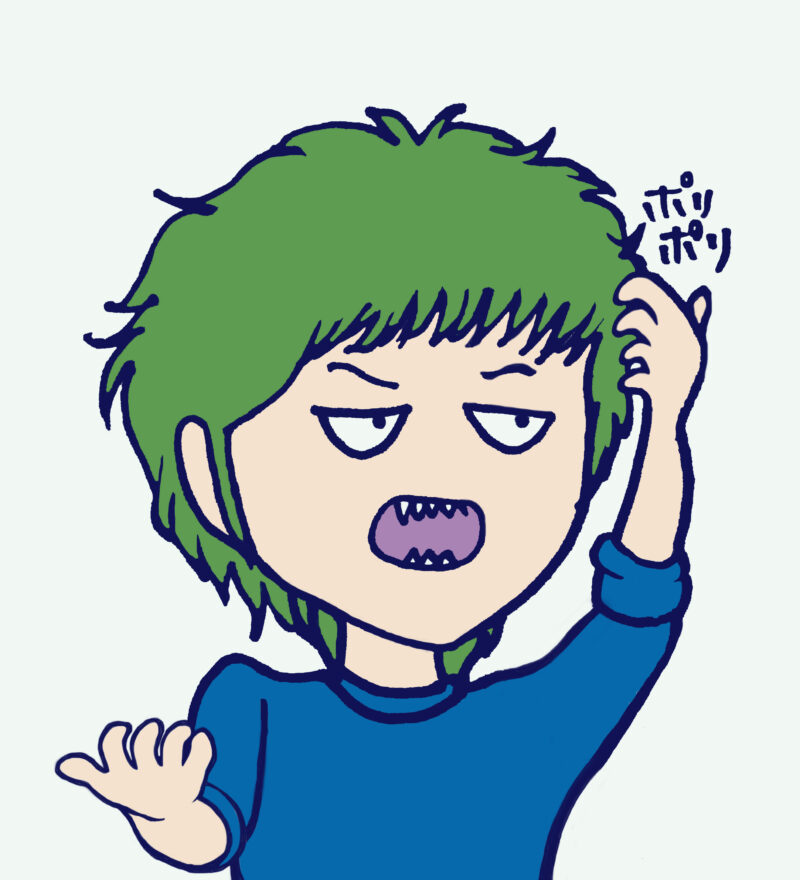
Err… What does small “tsu” in Katakana have to do with English conversation?

Well, frankly speaking, it is possible to improve some percentage of your Katakana-English pronunciation by paying attention to small “tsu”.
Well, let’s have a look…
Does small “tsu” in Katakana not exist in English pronunciation at all?
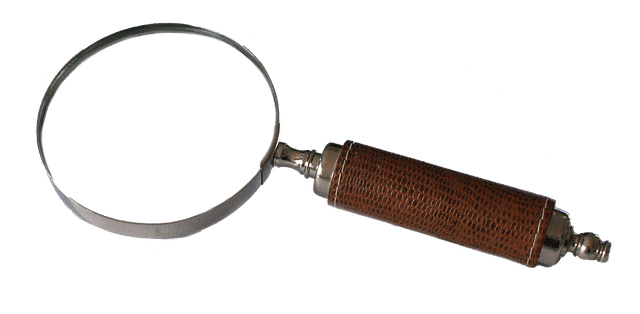
One of the “Hiragana” characters in Japanese, a small “tsu” (っ),
ex.「ゆっくり」”slow”, 「ちょっと」“a little/a few”, 「葉っぱ」”leaf”
…is also used in “Katakana”character / as “tsu” (ッ)
ex.「カップ」“cup”, 「ラケット」“racket”, 「セット」“set”
*”Katakana” character is applied to loan words in Japan.
However, has anybody ever felt like… something doesn’t feel right with the application of Katakana’s small “tsu” (ッ) to English pronunciation/writing?
Well, I am going to give focus to this small “tsu” (ッ) in Katakana, this time…
I asked my kids who were born in England to write things in Katakana, and then…
I have got a 10-year-old boy, and 8-year-old daughter, and basically the daily conversations are exchanged in English, hence when it comes to speaking in Japanese, it’s not as good as speaking in English for them.
Speaking in Japanese is not too bad actually, however, for them, the problem is “reading” and “writing”!

Therefore, in order to improve the situation, I have been giving them a task which is to think of some Japanese words that can be written in Katakana, choose 20-30 words out of them, and then put them down on a paper.
And the result was…a full of discoveries!
To reveal the content of discovery in brief, it was like…
I have found an opposite version of our struggling procedure which can be seen while we Japanese make an effort to convert our Katakana Englishaccentintoproper English pronunciation.
In other words…
I have spotted certain formulas by seeing how my kids fail to convert their English into Katakana in writing!


This could be a quite interesting discovery for those who study English pronunciation, if nobody has ever looked at the matter this way.
If you compare the process of these two procedures of converting…
Katakana ➡︎ Actual English pronunciation
…and
Actual English pronunciation➡︎ Katakana
you will be able to see the very same thing happening from both perspectives…
Examples of Katakana in writing which were converted from English pronunciation
Right. Please have a look at the following images of what my kids wrote in Katakana?
Can you figure them out? w
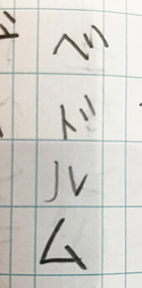

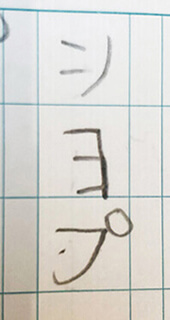
From the left (…or from the top if you are with your mobile phone?), they are meant to be… ベッドルーム (bedroom), フィッシュ (fish) and ショップ (shop), however…
A small “tsu”(ッ) doesn’t seem to exist in their head…
Now, have a look at the other examples…
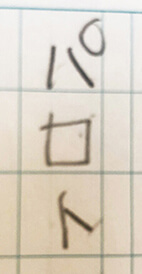
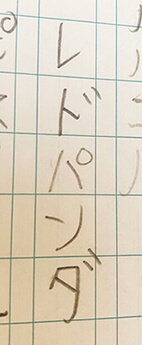
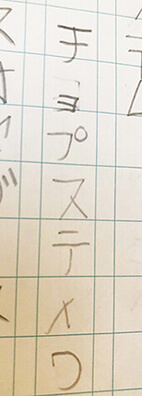
They are meant to be…パロット (parrot), レッドパンダ(red panda) and チョップスティック (chopstick), but again,the small“tsu” (ッ) is missingin each word.
There are lots more like…
アップル ➡︎ アプル,
フロッグ ➡︎ フログ,
オリンピック ➡︎ オリンピク
and so on, but with no exception, you will see the small “tsu” (ッ) missing in each word.

But, this actually means that…
If you consciously take the small “tsu”(ッ)out of any words (which are meant to be written with small “tsu”(ッ) in Katakana) when you try to pronounce them, they will automatically sound closer to English pronunciation!
Getting rid of small “tsu”.

I guess you have at least once ever watched the scene where some Japanese comedians (possibly wearing a blonde-haired wig) are acting as Japanese-speaking foreigners with strong English accent in their sketches…
And they typically speak like…
chyottomatte ➡︎ chyotomate
komattanaa ➡︎ komatana
yappari ➡︎ yapari
In fact, the way they copy Japanese-speaking foreigner’s accent is absolutely making sense.

You can see how it is making sense by checking the phonetic symbols of English vocabularies…
For instance, pick some very simple English vocabularies as below…
hit/ pack / god / socks / habit
and then, if we write them in Katakana, they will be…
ヒット / パック / ゴッド / ソックス / ハビット
Now, here are the phonetic symbols of these words…
[hɪt] / [pæk] / [ɡɒd] / [sɒks] / [hæbɪt]
This time, instead of converting them into Katakana as vocabularies which we Japanese have already recognised and have been using, convert them into Katakana-letters… they will be…
*Although it is simply impossible to put down the words that finish with consonant in Katakana, in order to keep this explanation going, we won’t go into the subject of voiceless sounds, etc. at this point… (We will come back to this later on.)
ヒト / パク/ ゴド/ ソクス / ハビト

The small “tsu” (ッ) has now disappeared from Katakana-vocabularies!
How’s it?
Something we hadn’t been able to see has started to show up, hasn’t it?
Small “tsu” (っ) {or (ッ)] does not exist in foreigner’s (or English) vocabularies, therefore, naturally these subtle small “tsu” (っ) that exists in Japanese vocabularies such as 「やっぱり」「ちょっと」won’t be picked up.
And now, we are coming back to the phonetic symbols of these words…
Earlier, we have converted these phonetic symbols…
[hɪt] / [pæk] / [ɡɒd] / [sɒks]/ [hæbɪt]
into Katakana letters as…
ヒト / パク/ ゴド/ ソクス / ハビト
however, these phonetic symbols finish with consonant letters.
Therefore, if we are going to adjust them to how they sound with Katakana letters above, it should actually be written as…
[hɪto] / [pæku] / [ɡɒdo] / [sɒkusu] / [hæbɪto]
These letters in light blue will be needed to attach, however, they don’t exist in actual vocabularies (nor in phonetic symbols).

And furthermore, we turn the consonant letters at the end of the vocabularies into orange colour (to make them easier to see)
hit/ pack / god / socks / habit
and convert the blue parts that are possible to pronounce in Japanese into Katakana letters, they will be…
ヒt/ パck / ゴd / ソcks / ハビt
These orange parts with no vowel letters are pronounced with some sort of noise created by person’s tip of tongue and teeth, letting the air go through between the teeth, etc. …just like striking a match in a way, therefore a bit of force or momentum is required.
And this fact will bring about a very subtle gap between the blue letters and the orange letters (ex between ヒ and t or between ゴ and d ), but this gap is not as big as the sound of small “tsu” (っ) in Hiragana (=Japanese alphabet)
However, because the small “tsu” (っ) does exist in Japanese, once we sense a gap (or gaps) within the foreign vocabularies, we tend to put the small “tsu” (っ) into it, just like how it normally sounds like in Japanese, and then it will be applied to Katakana (=Japanese alphabet used for loan words)
Hence, this generates a subtle difference between Japanese pronunciation and English (or foreign) pronunciation
Conclusion : the small “tsu” in Katakana needs to be excluded so as to acquire English pronunciation.

Well, anyway…
Let’s consciously get rid of the small “tsu” from Katakana-vocabularies, while we pronounce English words.
And also, let’s carefully listen to how native speakers are having conversations in a movie or otherwise, and pay attention to those words that usually contain small “ツ” (tsu) in Katakana-vocabularies…
I bet you will be like… “Uhh… I see!”
This small “tsu” might be only a small part of a big whole issue of Japanese people’s Katakana pronunciation and we have lots more to adjust including well-known issue of “L” and “R” on top of the list. However, the big improvement often happens as a result of an accumulation of small improvements.
So, give it a time and take things slowly…
Anyway, this is it about Katakana’s small “tsu” (っ).
Thanks for reading this till the end.
konkaz

